
Boss Learns An Employee Is Looking For A New Job, Calls The Company To Give His Recommendation, Divides The Internet
Respect. Trust. Empathy. These, I think, are the core things that make for a great leader, whether in the office or outside of it. But the proof is in the pudding: sweet promises about always having your back might sound great but they mean nothing unless your boss is willing to fulfill them.
Jerry Meyer, the CEO at Fiscal Care Services, is going viral on LinkedIn for a post in which he shared how he reacted when he found out that one of his employees went for an interview at another company. Instead of getting mad, he did something unexpected—he gave the potential employer a call, complimented the employee, and suggested that they be hired. Within the next hour, the new job was theirs.
Jerry’s story actually divided the LinkedIn community. Some thought that he was a great boss for setting his ego aside and going the extra mile to help his employee progress their career elsewhere. However, some others thought that calling the employer without the employee’s express permission may have been a violation of privacy. The main issues, for these LinkedIn users, seem to be that the employee was, allegedly, not consulted at any point about this before their boss made the call.
What matters, though, is what you think of the situation, dear Pandas. Scroll down, have a read through Jerry’s full post, and let us know in the comments whether you think what he did was great or if he should have held back. Personally, I’m split down the middle: I think Jerry’s intentions were absolutely great, but I’m also a big fan of transparency and communication between management and employees.
Jerry, the CEO at Fiscal Care Services, found out that an employee of his was interviewing for a job at another company
Image credits: Dylan Gillis
He decided to give his colleague a helping hand. However, Jerry’s story divided the LinkedIn community
Jerry’s post went absolutely viral on LinkedIn, racking up nearly 70k reactions at the time of writing. What’s more, his story got over 1.8k comments and really got people discussing what a good boss should act like. It’s also interesting to see this discussion play out within a broader context, specifically where more and more people are working second (and even third and fourth) jobs secretly, instead of jumping from one to another.
Not too long ago, I spoke about what makes a great manager with Eddy Ng, the Smith Professor of Equity & Inclusion in Business at Queen’s University. He shared with Bored Panda that there are two main approaches—or modes—when it comes to leadership: transactional (carrot and stick) and transformational (supportive).
“Transactional leadership is based on exercising bureaucratic authority and legitimate power in the firm,” he said that transactional leaders rely on rewards and punishments to influence their employees’ behaviors.
Meanwhile, transformational leaders focus on supporting their colleagues. They embody these values: idealized influence, inspirational motivation, intellectual stimulation, and individualized consideration.
“In this regard, transformational leaders provide support and encouragement to employees. They tend to influence employee behaviors by positively motivating them. Good managers tend to practice a transformational style of leadership,” Eddy shared with Bored Panda.
The business and management expert said that bosses can build solid relationships and trust by showing genuine empathy and concern for their employees. This way, their employers are more likely to trust them, too, and will be more open about any issues in the workplace.
“In this fashion, employees will be more likely to open up and share work and personal concerns with managers. Regularly conducting anonymous employee surveys, albeit more formal, can also help managers troubleshoot employee grievances.”
Some professionals expressed their support for what Jerry did
Meanwhile, some opened up about their personal experiences with less than supportive management
The praise wasn’t universal. A few LinkedIn users were concerned that Jerry may have violated the employee’s privacy
Some even thought that what the CEO did was ‘suspicious.’ Here’s what they had to say
84Kviews
Share on FacebookHelping an employee with a new job by giving them excellent recommendations is great - going behind their back is not, it is belittling. Thank you very much, but I am not a toddler who needs a helping hand getting out of the stroller... If you as my current boss feel the need to interfere with my professional life - TALK TO ME FIRST!
Employee: "Well, I hope you don't mind, but I took the initiative and I called your wife to tell her you've been cheating on her with 3 of the employees that work for you. I felt as though you've maxed out the number of employees you should be having relations with. I think you can push yourself harder and expand your horizons if you get a divorce." ... Boss: "Don't you think you should have discussed this with me first?" ... Employee: "Huh? Why?"
Helping an employee with a new job by giving them excellent recommendations is great - going behind their back is not, it is belittling. Thank you very much, but I am not a toddler who needs a helping hand getting out of the stroller... If you as my current boss feel the need to interfere with my professional life - TALK TO ME FIRST!
Employee: "Well, I hope you don't mind, but I took the initiative and I called your wife to tell her you've been cheating on her with 3 of the employees that work for you. I felt as though you've maxed out the number of employees you should be having relations with. I think you can push yourself harder and expand your horizons if you get a divorce." ... Boss: "Don't you think you should have discussed this with me first?" ... Employee: "Huh? Why?"

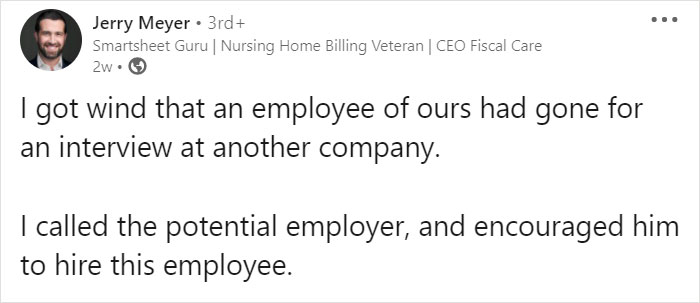
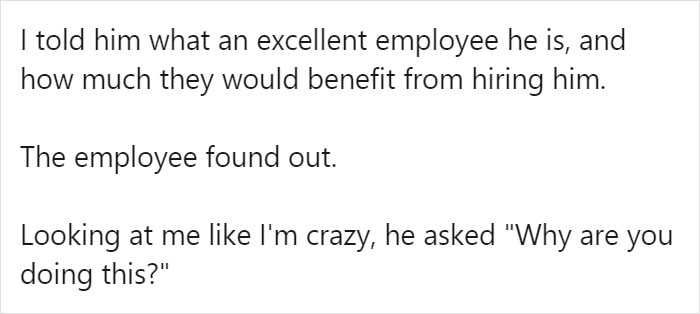
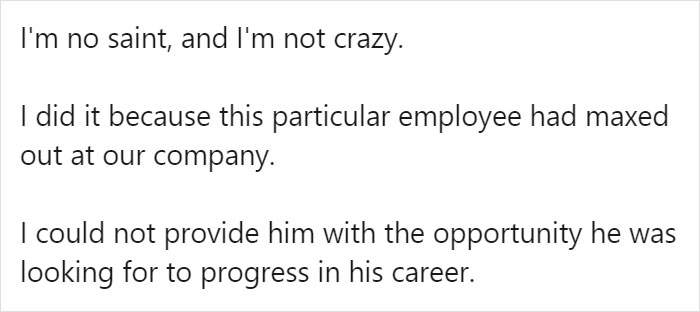

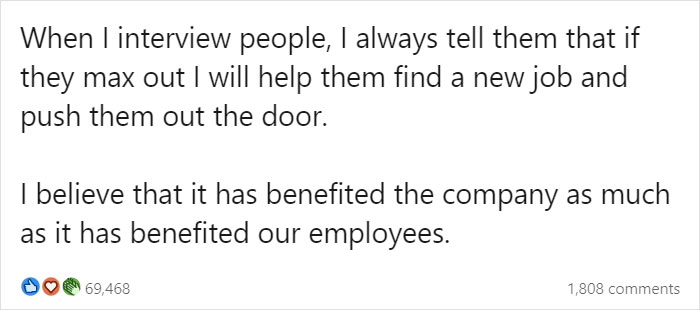
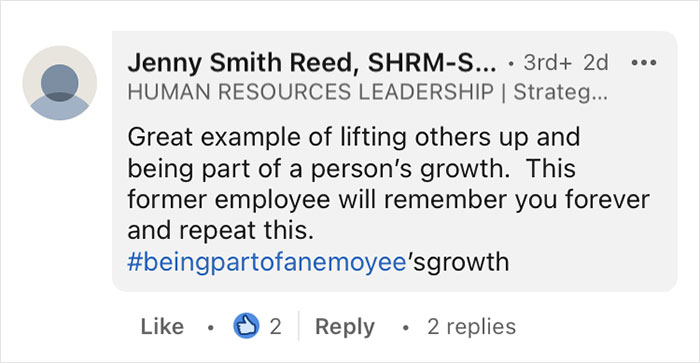
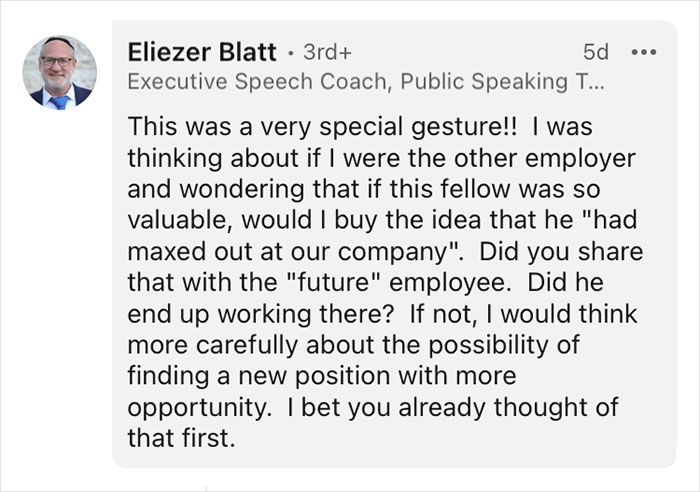


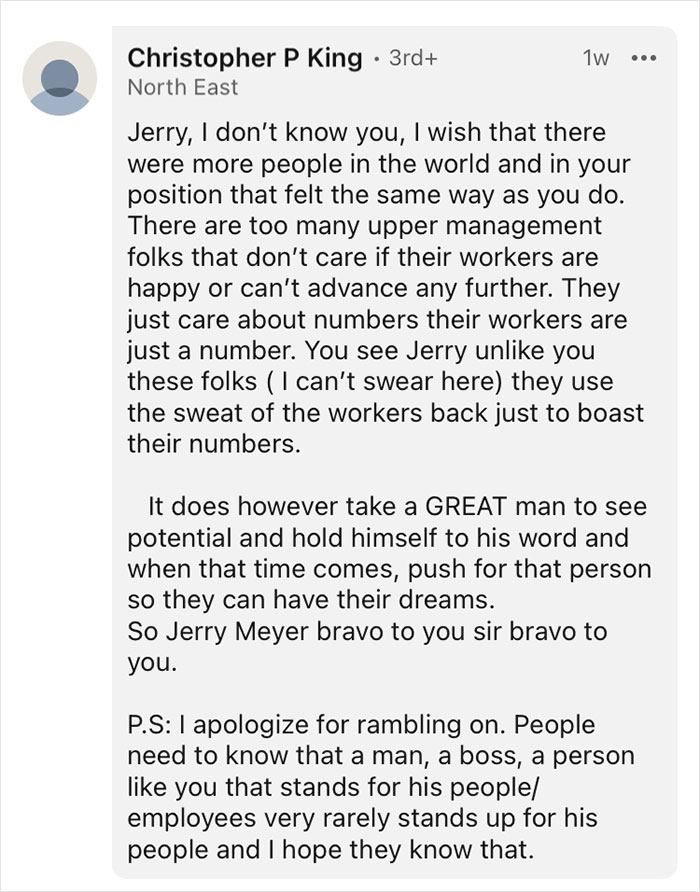

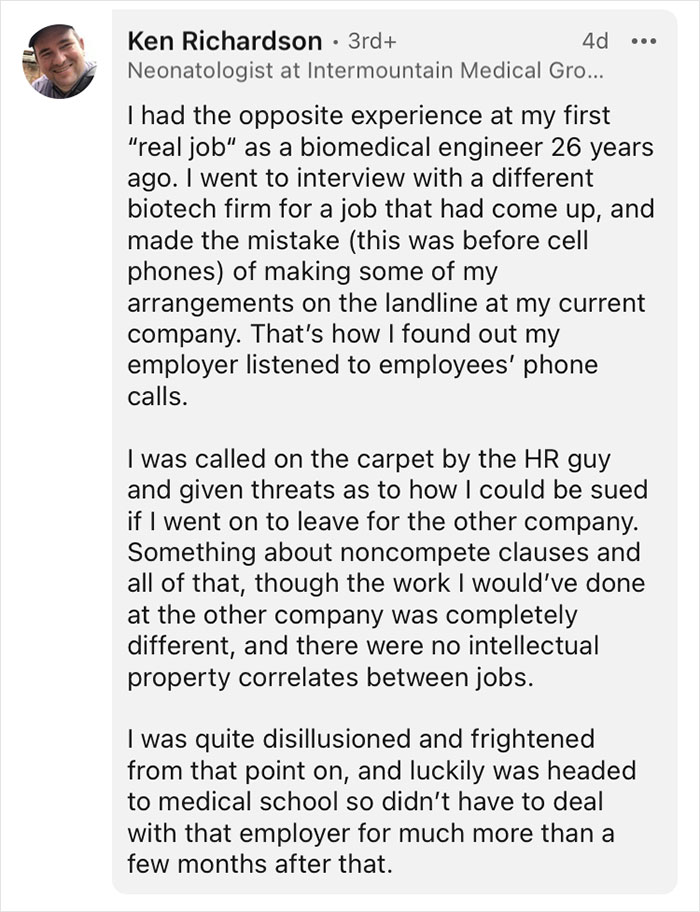

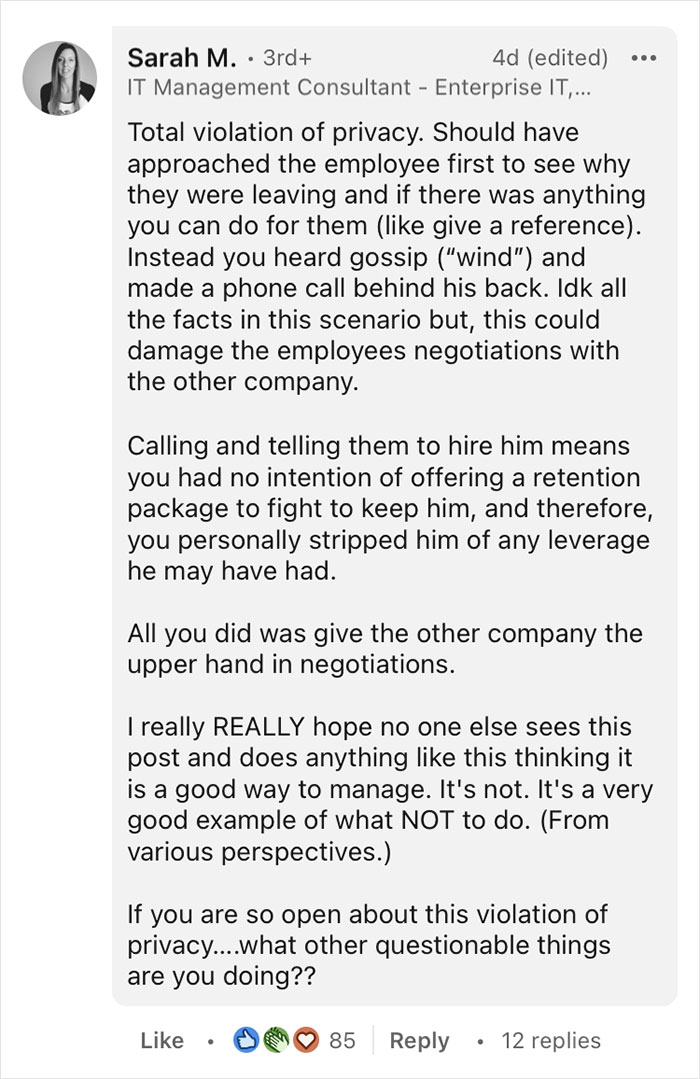
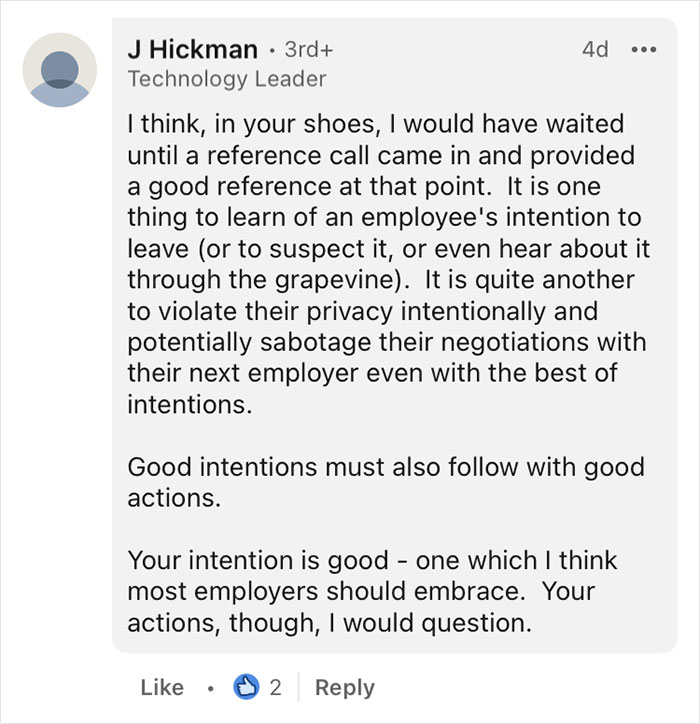
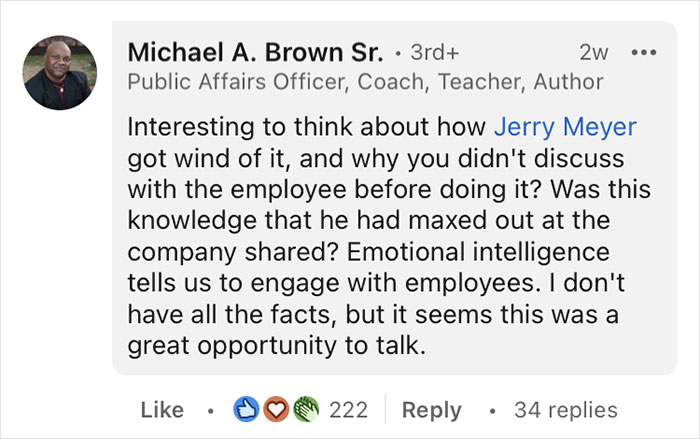
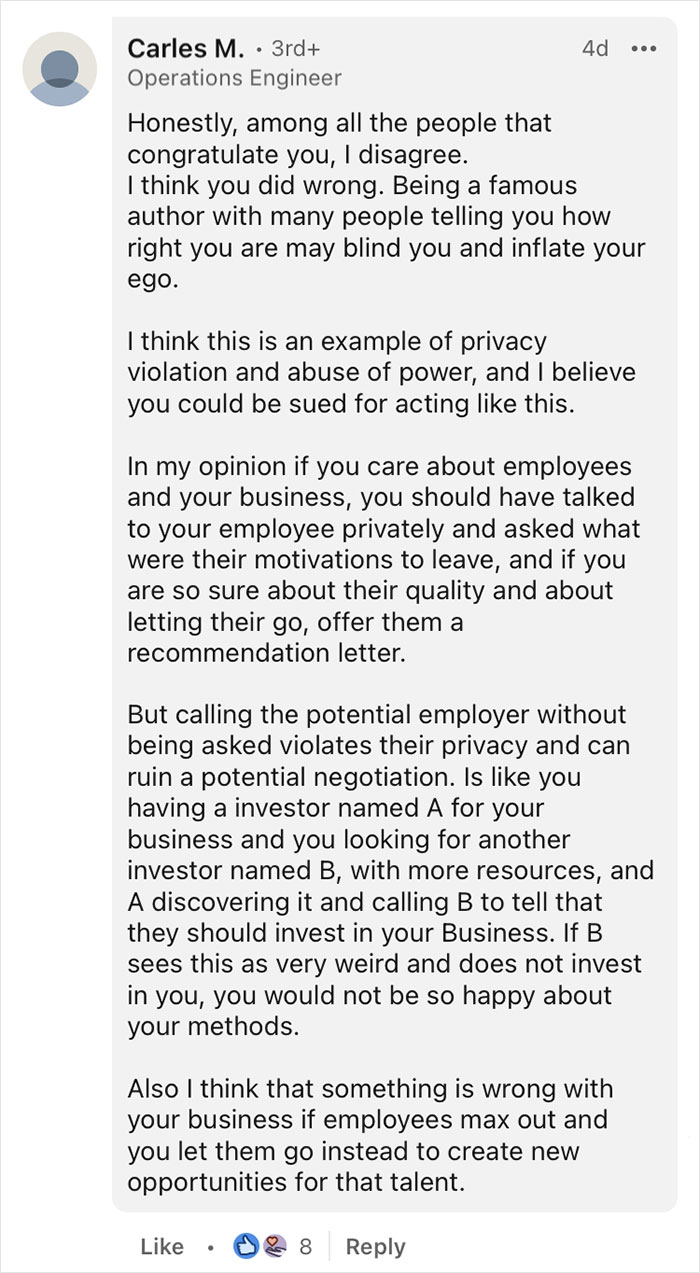
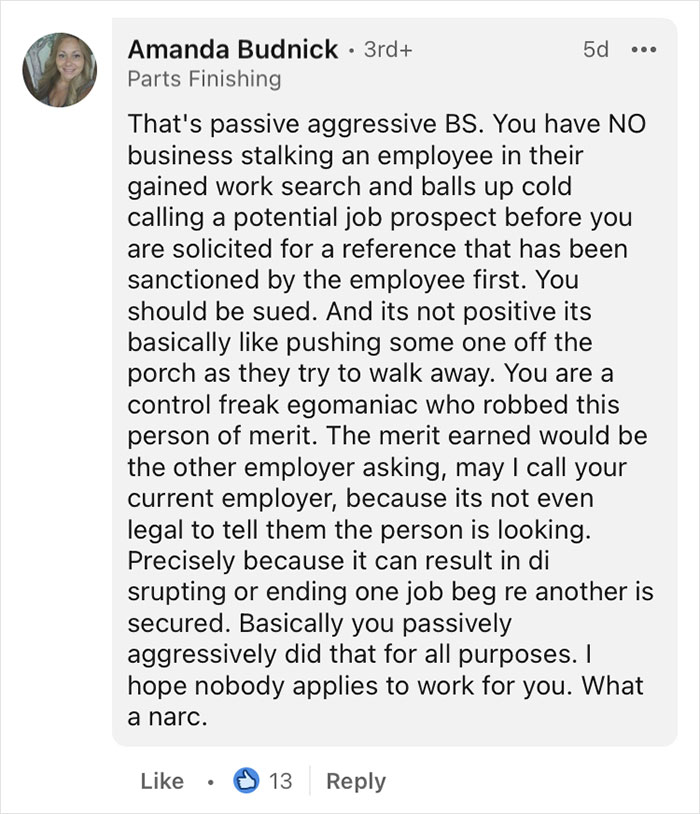

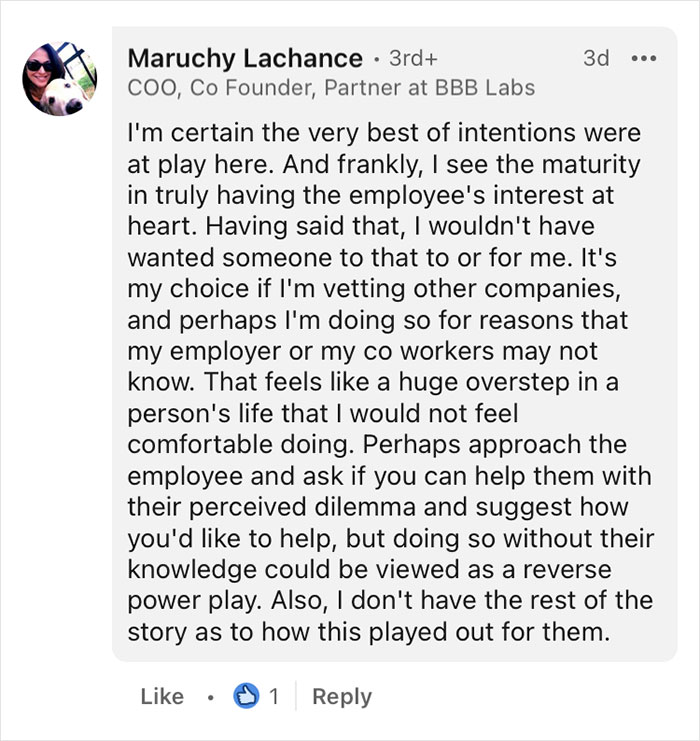
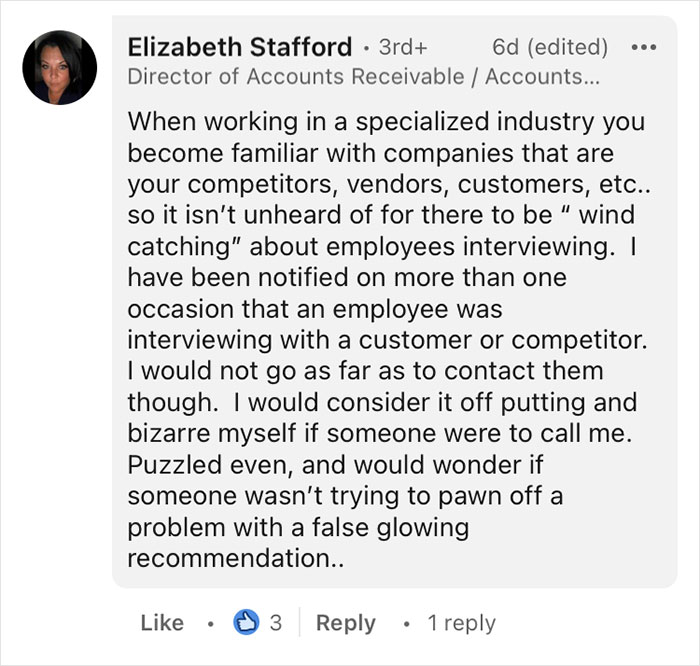

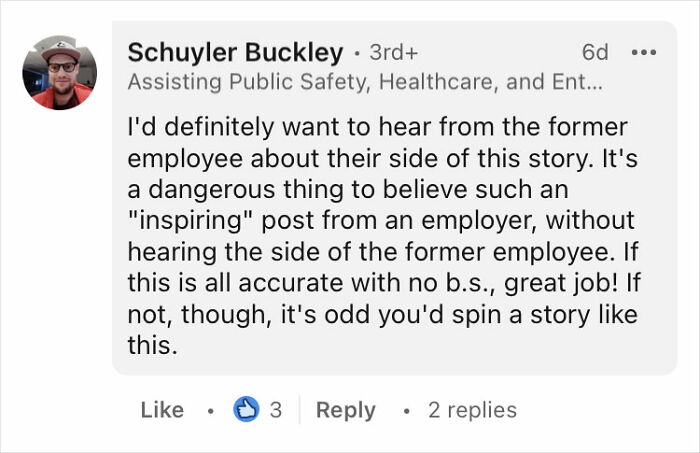




86
21